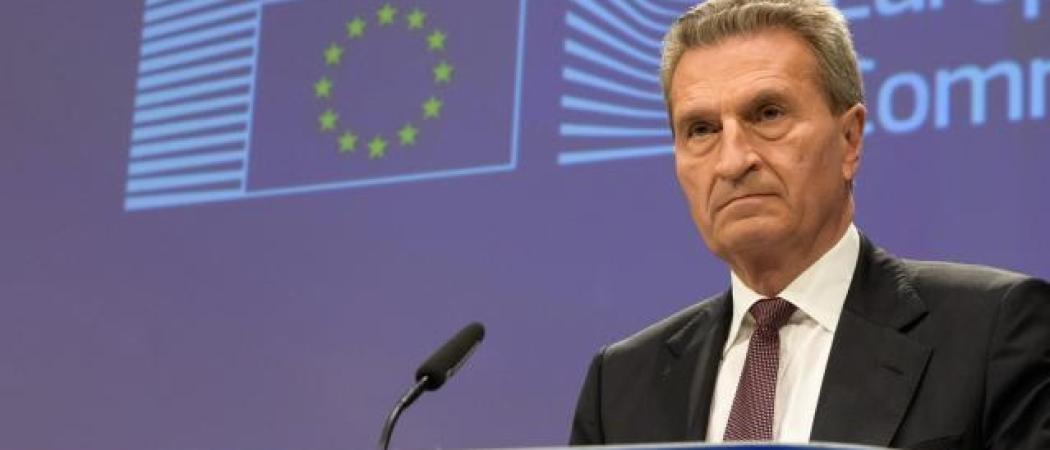Oettinger says newer EU members ‘don’t see how they can benefit’ from Horizon Europe plan

EU budget chief says some member states have criticised Horizon Europe plan
The European Commission’s budget chief, Günther Oettinger, said some central and eastern European countries do not back the European Commission’s proposal to increase science funding in the EU’s 2021-2027 budget.
“[These] countries criticise the fact that the research is going to be increased. They say they don’t have a research landscape back home and therefore cannot benefit,” Oettinger told journalists in Brussels October 12.
His comment highlights a growing budget tussle between eastern and western member-states.
Oettinger's May proposal for the EU budget outlined cuts to both regional-development and agriculture programmes, which together account for around 70 percent of the bloc’s budget and on which the EU’s poorer, eastern members are heavily dependent.
As the Commission’s proposal reads now, the next research programme, Horizon Europe, would boost funding for basic science, social sciences, industrial R&D and entrepreneurship, from the current €77 billion in the seven-year Horizon 2020 programme, to €94.1 billion.
Traditionally, the lion’s share of EU science funding has flowed to the richer, western side of the bloc – countries here scooped 85 per cent of total monies available for science from 2007-2014. The ten Central and Eastern European countries that joined the EU after 2004 received only 4 per cent of total grant money in the same period.
‘Spreading excellence’
In Horizon 2020, the success rate of poorer countries has improved – but only by 0.4 per cent overall, and participants from Bulgaria, Latvia, Lithuania and Malta have received only 0.1 per cent of funding each (Germany, by contrast, has gained 17 per cent of Horizon 2020 funding).
In the coming budget, the Commission is pledging more money for “spreading excellence” science projects, which are designed to help poorer countries catch up. Romanian MEP Dan Nica, one of two key drafters on Horizon Europe for the Parliament, has a more radical suggestion: he wants regional quotas to bridge the innovation gap.
This east-west split could harm research ministers’ negotiating hand in talks on the shape of the next EU budget. And Britain’s departure from the bloc removes one of the EU’s strongest supporters of research funding, further shifting the east-west political balance over this issue.
The “tug-of-war” over funding is a drama within several dramas, Oettinger said. “Some member states say the overall [budget] ceiling is too high; other member states are vehemently against any kind of cut to the agricultural budget,” he said.
The commissioner on Friday repeated his appeal for governments to pay a little bit more into the EU budget – today about 2 percent of the total spending by EU member states – to cover an expected €10 billion annual hole caused by the UK’s withdrawal from the bloc.
Four member state governments – the Netherlands, Denmark, Austria and Sweden – have already said they do not want to increase their EU budget contributions.
The budget battle will rage to the end of 2019 and possibly into 2020, the commissioner said, beyond the life span of the current Commission and Parliament, whose mandates run out next year.
Oettinger said European elections next year would be “difficult”. “[Former Trump adviser Steve] Bannon is pottering around the continent. There are all kinds of populistic, nationalistic outcomes in elections. We’ve got to fight for the European cause,” he said.





 A unique international forum for public research organisations and companies to connect their external engagement with strategic interests around their R&D system.
A unique international forum for public research organisations and companies to connect their external engagement with strategic interests around their R&D system.